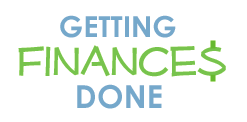Does money buy happiness?
Written by Sam Another article from Money magazine writer Jean Chatzky recently caught my eye. The article discussed whether or not money can buy happiness – or more specifically if buying things brings happiness. It caused me to reflect upon the role money has played in my life and how it has or hasn’t contributed to my happiness.
Another article from Money magazine writer Jean Chatzky recently caught my eye. The article discussed whether or not money can buy happiness – or more specifically if buying things brings happiness. It caused me to reflect upon the role money has played in my life and how it has or hasn’t contributed to my happiness.
Little statistical correlation between money and happiness
There’s really no scientific basis that equates money to happiness. In fact, the Money magazine article points out that there’s little difference in the overall happiness of millionaires vs. the middle class. Money can affect happiness if it brings someone out of poverty, but past that it has little to do with overall happiness.
One survey found “virtually the same level of happiness between the very rich individuals on the Forbes 400 and the Maasai herdsman of East Africa.”
Another study actually did find a positive correlation between money and happiness but concluded that the increased happiness was not a result of earning a pre-determined amount of money but rather how much money people made compared to others in their age group. It was a “keep up with the Joneses” mentality.
Yet another survey showed little correlation between money and happiness and points out that those with incomes over $100,000 a year spend 19.9% of their time engaging in leisure activities while those making less than $20,000 spent 34% of their time on leisure activities. This implies that those with more leisure time have more happiness (a conclusion I don’t quite agree with).
Some polls show that Americans are no more happy now than they were 50 years ago despite large increases in the overall standard of living. A Minnesota University researcher postulates that happiness is 50% genetics and 50% determination. As Abraham Lincoln once said “Most people are as happy as they make up their minds to be.”
Spend money on experiences
If you’re determined to spend money in the attempt to find happiness, Jean recommends spending money on experiences rather than objects. Objects may give us a temporary boost in happiness, but most people quickly adjust back to normal levels of happiness where the object becomes part of the norm. On the other hand, if the object gives you particular experiences, the memory of the experience or even friendships created during the experience can produce much longer-lasting, robust happiness.
What would you be doing if you were financially independent?
I was recently contemplating what my life would be like if I were financially independent and had enough money to do or have anything I wanted. What would I do every day? What would I have been doing that evening? As I thought, I realized that I would have spent the evening exactly the way I had just spent it — spending time with my wife and family and engaging in things that I’m passionate about (writing this blog being one of them). I powerfully realized at that moment that money had absolutely no impact on my happiness that day. Having more money I may have spent time with my family in a nicer house or wrote articles for this site on a nicer computer but those things wouldn’t have made me any more happy (with the possible exception having dual monitors which does make me consistently happy).
When I started this website I set three goals for myself:
- Enjoy myself – I would only continue creating and managing this site if I enjoyed doing it. If I found I wasn’t enjoying a majority of the time I spent writing, I would stop.
- Help others – I hope to be able to give others the tools they need to get control of their finances. If I can even help just a few people gain clarity about their finances I’ve succeeded.
- Earn supplemental income – Notice that this is the last and least important goal. If I never make a dime from this site but accomplish the first two goals, this project is a success. As it is, this site actually has generated a decent supplemental income most of which I plan to reinvest in financial management tools or products.
It was clear to me when I created Getting Finances Done that making money couldn’t be my first or only goal. What an empty, meaningless project it would be for me if that were the case. So far it’s been an incredibly rewarding experience as I’ve seen the discussions, comments and questions that have been raised. Doing what I’m passionate about has created way more happiness than any money I’ve made.
Some material things that make me happy
On the other hand, there are some material things that have contributed to my happiness. These are typically things that either a) I consciously enjoy on a daily basis or b) things that promote interaction with others.
Let me give you a couple of examples. I jokingly referred to my dual LCD monitors above. While it may seem bizarre, they truly bring me a degree of happiness. I use them every day and consistently find them improving my work flow and increasing my quality of life. I find conscious enjoyment from them. I haven’t “gotten used to them” so to speak. Maybe my perceived increase in happiness from the dual-monitor goodness is not really an increase in happiness but simply an increase in my standard of living and quality of life. Is there a difference? Would I be less happy without dual monitors? In some small way I think I would be slightly less happy or have less enjoyment but I certainly wouldn’t go into depression or have a significant decrease in happiness.
An example of something that promotes interaction with others is a game (video or board game). My wife and I have been fans of Dance Dance Revolution for some time and have had many opportunities to play with others. This activity has helped us develop relationships with others that bring happiness, both in the moment and ongoing. I realize that the true happiness comes more from the interaction with others than the game, but the game can facilitate increased happiness and is definitely fun to play in the moment. There have been many board games that we’ve played with friends and family to a similar end.
Assessing lifelong learning & the pursuit of happiness
In the end I tend to think that happiness is mostly a choice that can be slightly enhanced or degraded by some material things. But if we’re looking to outward things as the basis for our happiness we’re on unstable ground. Focusing on serving, health, lifelong learning, relationships, and doing things you’re passionate about are much better foundations for persistent happiness. The Get Rich Slowly blog has a nice summary of Ten Steps to Greater Happiness that are more effective than most material attempts at happiness.
Happiness, health, wealth, money
What makes you happy? Does money bring you happiness? Do material things bring you happiness? A little? A lot? What would you do if you were financially independent and could spend your days however you wanted?
Related articles:
- Shopping for happiness? Here’s what to buy [money.cnn.com]
- Ten Steps to Greater Happiness [Get Rich Slowly]
- The Keys to Happiness, and Why We Don’t Use Them [livescience.com]
- Study: Money Does Not Buy Much Happiness [livescience.com]
- Can money buy happiness? [rediff.com]
- Money Won’t Buy You Happiness [forbes.com]
Posted in Money, Relationship | 9 Comments »


 Subscribe via email
Subscribe via email  Become a fan
Become a fan Subscribe via RSS
Subscribe via RSS Follow me
Follow me
May 1st, 2007 at 9:08 pm
Does money buy happiness?
May 2nd, 2007 at 11:28 am
Dan Gilbert is the Harvard College Professor of Psychology at Harvard University and has done a lot of work in the field of happiness. I haven’t read his book, but it’s on my list.
He gave a talk at TED in 2004 on the subject and it’s great!
May 2nd, 2007 at 8:37 pm
Great recommendation. I viewed the talk from TED. Very insightful. Thanks for that contribution.
Sam
May 3rd, 2007 at 5:47 am
In the ’50s and ’60s, researchers discovered that certain work factors were “satisfiers” and others “dissatisfiers.” Some of the former were interesting work and the opportunity to advance. Dissatisfiers were factors that could not produce satisfaction but their lack could produce dissatisfaction: a clean workplace, comfortable furniture, etc. Interestingly enough, income stood in the middle, reflecting peoples’ ambivalence towards money. Herzberg’s book, The Motivation to Work, is a classic work on the subject.
May 3rd, 2007 at 6:57 pm
I’ll check that book out. Thanks for the recommendation.
Sam
May 5th, 2007 at 7:01 am
[…] Original post by Getting Finances Done and software by Elliott Back Bookmark to: […]
July 26th, 2007 at 11:23 am
[…] Does Money Buy Happiness? […]
September 11th, 2007 at 5:21 pm
Interesting post, thank you. Here’s a dissenting view on money and happiness from personal finance author Suze Orman: “Happiness Is Income-Sensitive: Apparently, I’m not the only one who thinks so. A survey conducted earlier this year by the Pew Research Center reports that, overall, just 34 percent of respondents are very happy.
But when you start to slice the findings by income, it gets very interesting: 49 percent of respondents with an annual family income above $100,000 say they are very happy. When income falls between $75,000 and $100,000, the very-happy contingent falls to 38 percent. Just 24 percent of those with incomes below $30,000 said they were very happy.”
And a post about the so-called latte factor that relates to some of the points above, as well.
Regards, MBH
November 1st, 2007 at 11:05 am
I hate to burst anyone’s bubble but the idea that one can work a job (or career) and have enough for retirement and the “good life” is rapidly fading with globalization.
So, whereas in the recent past, 1950s to present, it may have been possible to separate money and happiness, today, it’s less likely.
In today’s world, having a pile of investable cash (or some other designated unit of money like silver) is more likely to accentuate one’s happiness which could include free time, pursuing one’s interest than in taking a job for a salary alone, and overall health and security then not having money, worrying about layoffs and being regionally displaced, etc, etc. With this is mind, money can lead to happiness.